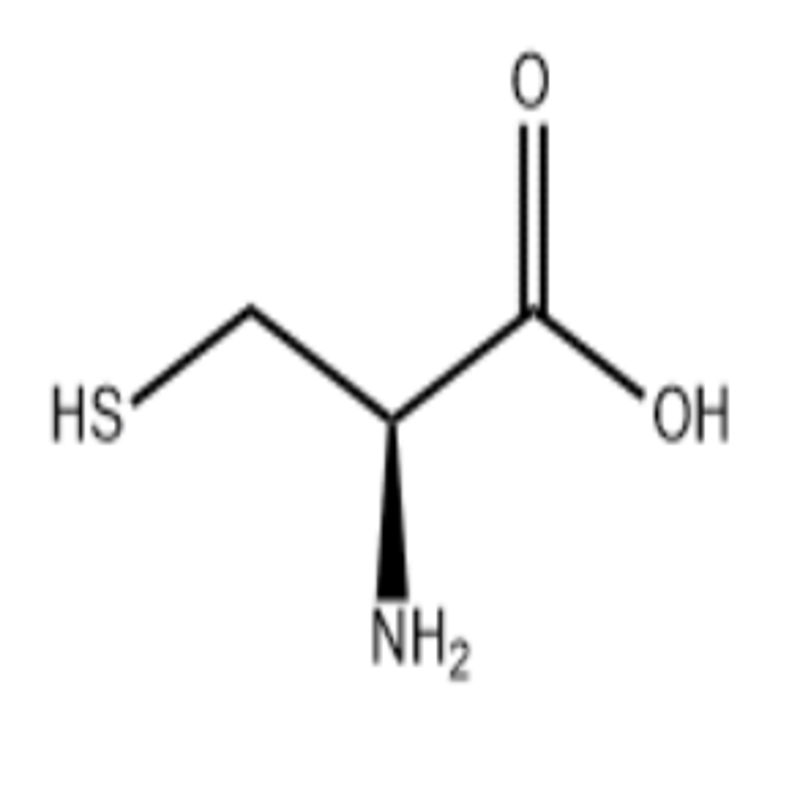-
Categories
-
Pharmaceutical Intermediates
-
Active Pharmaceutical Ingredients
-
Food Additives
- Industrial Coatings
- Agrochemicals
- Dyes and Pigments
- Surfactant
- Flavors and Fragrances
- Chemical Reagents
- Catalyst and Auxiliary
- Natural Products
- Inorganic Chemistry
-
Organic Chemistry
-
Biochemical Engineering
- Analytical Chemistry
- Cosmetic Ingredient
-
Pharmaceutical Intermediates
Promotion
ECHEMI Mall
Wholesale
Weekly Price
Exhibition
News
-
Trade Service
In January 2022, the International Dairy Federation (International Dairy Federation, IDF) officially released the fourth edition of the strain list for fermented food "IDF Bulletin N°514-2022 List of strains for fermented food and safety certification"
.
The team of Professor Yao Su, deputy general manager of the China Food Academy and chairman of the IDF Milk Microbiological Analysis Method Committee, has continuously participated in the update of the third and fourth editions of the list of IDF fermented food strains in the past five years.
There are currently 16 microbial strains in the list.
It comes from traditional Chinese fermented foods such as liquor , fermented tea, fermented bean curd , soy sauce , pickles , and vinegar
.
.
The team of Professor Yao Su, deputy general manager of the China Food Academy and chairman of the IDF Milk Microbiological Analysis Method Committee, has continuously participated in the update of the third and fourth editions of the list of IDF fermented food strains in the past five years.
There are currently 16 microbial strains in the list.
It comes from traditional Chinese fermented foods such as liquor , fermented tea, fermented bean curd , soy sauce , pickles , and vinegar
.
The scope of application of the International IDF strain list for fermented food involves dairy products, alcohol, meat products and other food industries, and is an important reference for global food production companies to carry out microbial strain safety claims and evaluations
.
The Chinese scientific team's in-depth participation in the revision of the list is of great significance to enhancing the international influence of China's traditional fermented foods and promoting international trade exchanges
.
.
The Chinese scientific team's in-depth participation in the revision of the list is of great significance to enhancing the international influence of China's traditional fermented foods and promoting international trade exchanges
.
List update content
· Supplement the types of bacteria used in fermented foods
The fourth edition of the IDF strain list for fermented foods includes a total of 325 microbial strains, including 230 bacteria and 95 fungi
.
Compared with the third edition list released in 2018, a total of 16 new strains have been added, as shown in the following table:
.
Compared with the third edition list released in 2018, a total of 16 new strains have been added, as shown in the following table:
· Sort out and classify the application fields of fermented food strains
The fourth edition of the IDF strain list for fermented foods re-categorizes the application fields of strains, including cheese, kefir, sourdough, wine, and soy sauce.
31 kinds of fermented foods such as sauce), fermented bean curd (Sufu), and fermented tea (Tea) are classified into 7 application areas, including dairy products (Dairy), bakery (bakery), alcoholic beverages (Alcoholic Beverages), meat products (Meat) , Plant-based products (Plant based), Seafood and Vinegar
.
31 kinds of fermented foods such as sauce), fermented bean curd (Sufu), and fermented tea (Tea) are classified into 7 application areas, including dairy products (Dairy), bakery (bakery), alcoholic beverages (Alcoholic Beverages), meat products (Meat) , Plant-based products (Plant based), Seafood and Vinegar
.
· Update the scientific taxonomic names of strains used in fermented foods
Correct taxonomic information of microbial systems is the basic premise for proposing and using the bacterial species list.
The fourth edition of the IDF bacterial species list has updated the scientific taxonomic names of 79 species of microorganisms
.
The nomenclature of bacteria follows the ICSP regulations of the International Committee on Prokaryotic Systematics, and conforms to the requirements of the International Nomenclature of Prokaryotes (ICNP)
.
The nomenclature of fungi follows the International Nomenclature of Algae, Fungi and Plants, and refers to current internationally recognized taxonomic databases such as Index Fungorum and Mycobank
.
In addition, considering the major changes in the taxonomic status of Lactobacillus in 2020, the fourth edition of the IDF species list adopts the latest taxonomic name of Lactobacillus
.
The fourth edition of the IDF bacterial species list has updated the scientific taxonomic names of 79 species of microorganisms
.
The nomenclature of bacteria follows the ICSP regulations of the International Committee on Prokaryotic Systematics, and conforms to the requirements of the International Nomenclature of Prokaryotes (ICNP)
.
The nomenclature of fungi follows the International Nomenclature of Algae, Fungi and Plants, and refers to current internationally recognized taxonomic databases such as Index Fungorum and Mycobank
.
In addition, considering the major changes in the taxonomic status of Lactobacillus in 2020, the fourth edition of the IDF species list adopts the latest taxonomic name of Lactobacillus
.
In recent years, Professor Yao Su's team has actively undertaken a number of IDF/ISO standard formulation and revision projects, and conducted research on issues such as the lack of a list of strains used in traditional fermented food production and processing in China.
In 2021, the second edition of "Chinese Traditional Fermentation List of Microbial Species for Food", involving 13 food fields such as wine, dairy products, condiments, fermented tea, flour products, and meat products, with a total of 124 species of microorganisms in 56 genera
.
This study provides an important reference and basis for supplementing and improving the application and management of microbial strains for traditional fermented food in China, and for promoting the healthy development of China's fermented food industry
.
In 2021, the second edition of "Chinese Traditional Fermentation List of Microbial Species for Food", involving 13 food fields such as wine, dairy products, condiments, fermented tea, flour products, and meat products, with a total of 124 species of microorganisms in 56 genera
.
This study provides an important reference and basis for supplementing and improving the application and management of microbial strains for traditional fermented food in China, and for promoting the healthy development of China's fermented food industry
.
CICC has nearly 90 years of collection and preservation history of traditional fermented food microbial strains, with nearly 10,000 strains isolated and preserved from domestic and foreign liquor, beer, red wine, dairy products, soy sauce, fermented bean curd, vinegar and other traditional fermented foods.
It has established an international advanced R&D and scientific and technological service platform in the fields of traditional fermented food microbial strain resource mining and evaluation, construction of national strain resource bank, accurate identification and evaluation of probiotics, and creation of microbial standard products, and innovation empowers China's food.
High-quality development of the industry
.
It has established an international advanced R&D and scientific and technological service platform in the fields of traditional fermented food microbial strain resource mining and evaluation, construction of national strain resource bank, accurate identification and evaluation of probiotics, and creation of microbial standard products, and innovation empowers China's food.
High-quality development of the industry
.
Copy link to get list
"The Fourth Edition of IDF List of Bacteria for Fermented Foods"
https://fil-idf.
org/publications/bulletin/inventory-of-microbial-food-cultures-with-safety-demonstration-in-fermented-food-products/
org/publications/bulletin/inventory-of-microbial-food-cultures-with-safety-demonstration-in-fermented-food-products/
"The Second Edition of the List of Bacteria for Traditional Chinese Fermented Foods"
http://sf1970.
cnif.
cn/CN/10.
13995/j.
cnki.
11-1802/ts.
029332
cnif.
cn/CN/10.
13995/j.
cnki.
11-1802/ts.
029332







